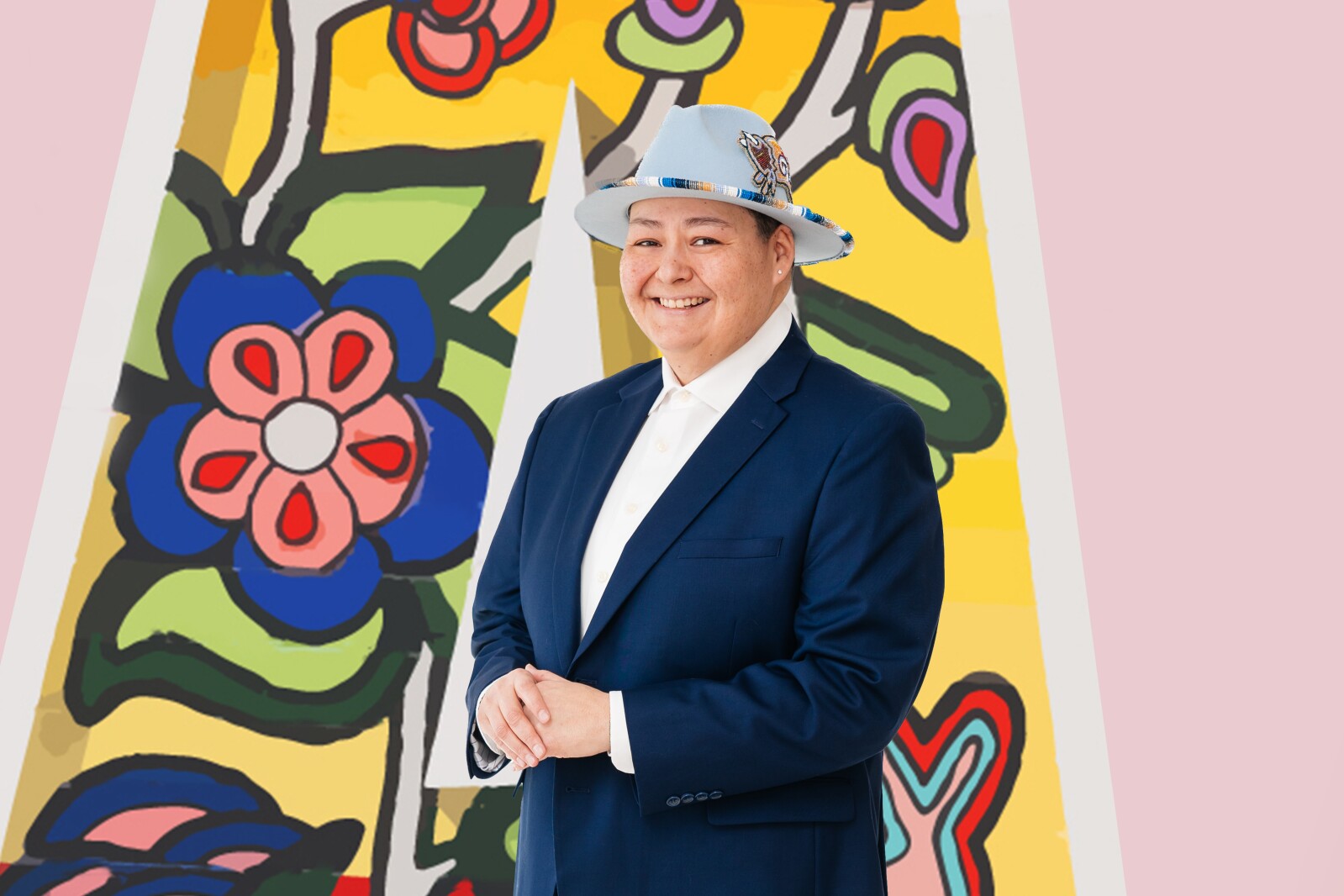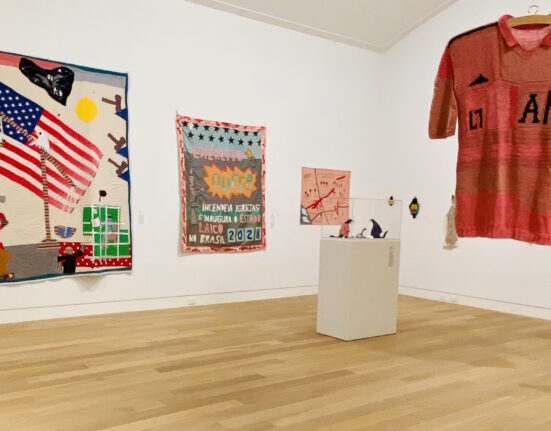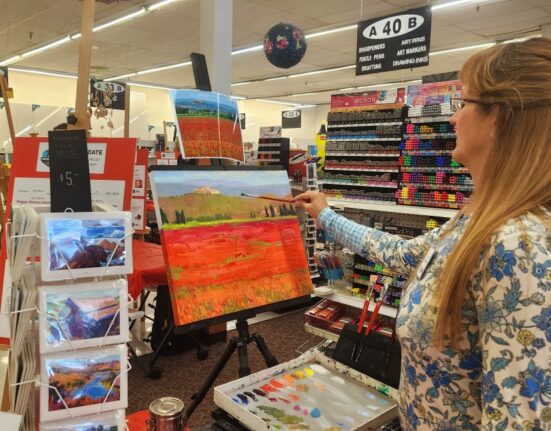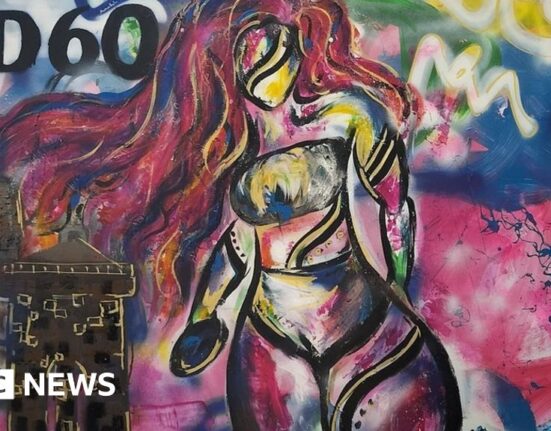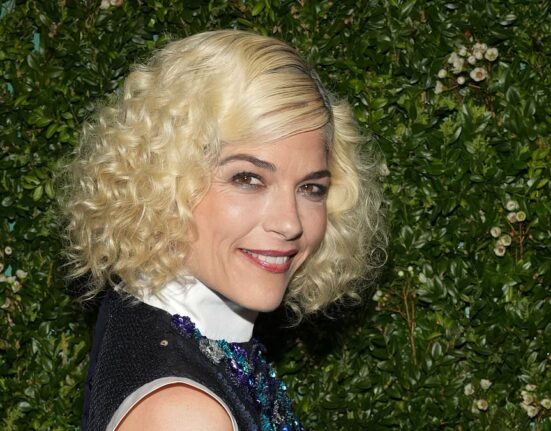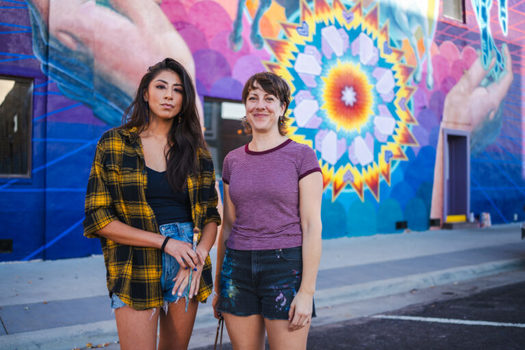Editor’s note: This is the second story in a series of profiles featuring LGBTQIA+ artists in the F-M community during Pride Month, celebrated each June.
FARGO — In many Indigenous communities, two-spirited people experience gender on a spectrum. They often become makers and healers.
Anna Johnson, an artist and enrolled member of the Turtle Mountain band of Chippewa Indians, is two-spirit and a maker. Her murals beautify many public spaces, such as the International Market building on Main Avenue in Fargo and the Midtown Plaza on University, and most recently at New Story Counseling along 13th Ave. S.

David Samson/The Forum
But her murals aren’t just pretty to look at. They tell important stories, encourage community connectedness and represent her lived experience as a Native American and a lesbian living in a red state, as well as an activist who knows representation matters.
“I’m two-spirited, and what that means to me is bringing inclusivity into everything I do,” she said. “For me as an artist, because I’m Native American, that’s my number one thing. If you were going to rank my traits, yes, I’m a woman. Yes, I’m a Native American. Yes, I’m gay.”
Johnson frequently includes LGBTQ+ themes in her work by painting scenes from Indigenous stories, adding rainbows and other symbols synonymous with queer culture.
“As a Native American, I want to keep our stories alive,” she said. “And gay it up a little.”
Johnson recently completed a commission for New Story Counseling in Fargo where she was asked to include rainbow elements, a nod to LGBTQ pride.
Johnson’s two-spiritedness enables a boundless energy for community, too. Her public-facing murals are a highly visible representation of her lived experience, even though her formal training is in printmaking (she has a degree in printmaking from NDSU).
“I’m not an advocate for the whole world, but I feel like human rights are rights for everyone,” she said. “The overarching theme of my work is to keep telling the stories so that they don’t get lost from my culture.”

The 41-year-old is also a professional truck driver,
and a candidate for Fargo City Commission
. She holds seats on the City of Fargo Arts and Culture Commission and The Arts Partnership board, among others. She’s also a premier member at Gallery 4 artist co-op and a member of the Fargo Moorhead Visual Artists.
“My wife tells me I should start saying no to people,” she laughs. Considering her bid for city commission, that might not happen, at least for a while.
‘Just an old-school lesbian’
Johnson came out when she was 15. Growing up on the Turtle Mountain Band of Chippewa Indian Reservation in Belcourt, ND, she said it became apparent to everyone early on that she was two-spirit.
“I’m very butch. I walk around with this face, and I’m not blending in like some women blend in as straight,” said. “And so that’s why I’m so visible. I can’t get away from who I am as a person as a more masculine-presenting woman with the suits and stuff. I like to say I’m just an old-school lesbian.”

David Samson / The Forum
Johnson is frequently asked about her experience as a queer woman living in North Dakota. “Queerness is evolving,” she said. “Queer means inclusivity, but now I get misgendered a lot as a ‘they/them’ because I’m masculine and people think that’s being inclusive.”
Johnson said she’s become a sort of “poster child” for the gay community in the state, a role she both embraces and approaches with caution.
“I don’t want to be the voice for everyone, but everybody comes to me to be the person because I will speak to people for whatever reason, because it’s important and representation matters in all facets. Being out matters.”

Alyssa Goelzer/The Forum
Johnson moved from Bismarck to Fargo in 2006, just after meeting her wife Susan Johnson. The couple married in February 2009 and have since made a home for themselves in midtown Fargo.
“North Dakota is my home. My family is here, my work is here,” she said.

David Samson/The Forum
Johnson’s primary job is as a truck driver for Holcim, formerly Aggregate Industries. She’s worked for the company for several years, mostly hauling sand and gravel in a dump truck. The work is seasonal, giving her time in the winters to take on more art projects and community initiatives.
Johnson said her responsibilities as a truck driver have really taught her a lot about people and how she might help offer them greater representation in the work they do—no matter who they are. Her time working as a city bus driver from 2015-17 seemed to have a powerful impact on her.
“Driving bus you really see who lives here and what’s really going on,” she said. “We have good services set up, but we need more money, we need more housing. I think my experience as a driver has really given me a perspective [on our community] most people don’t often see.”
‘Art as activism is a real thing’

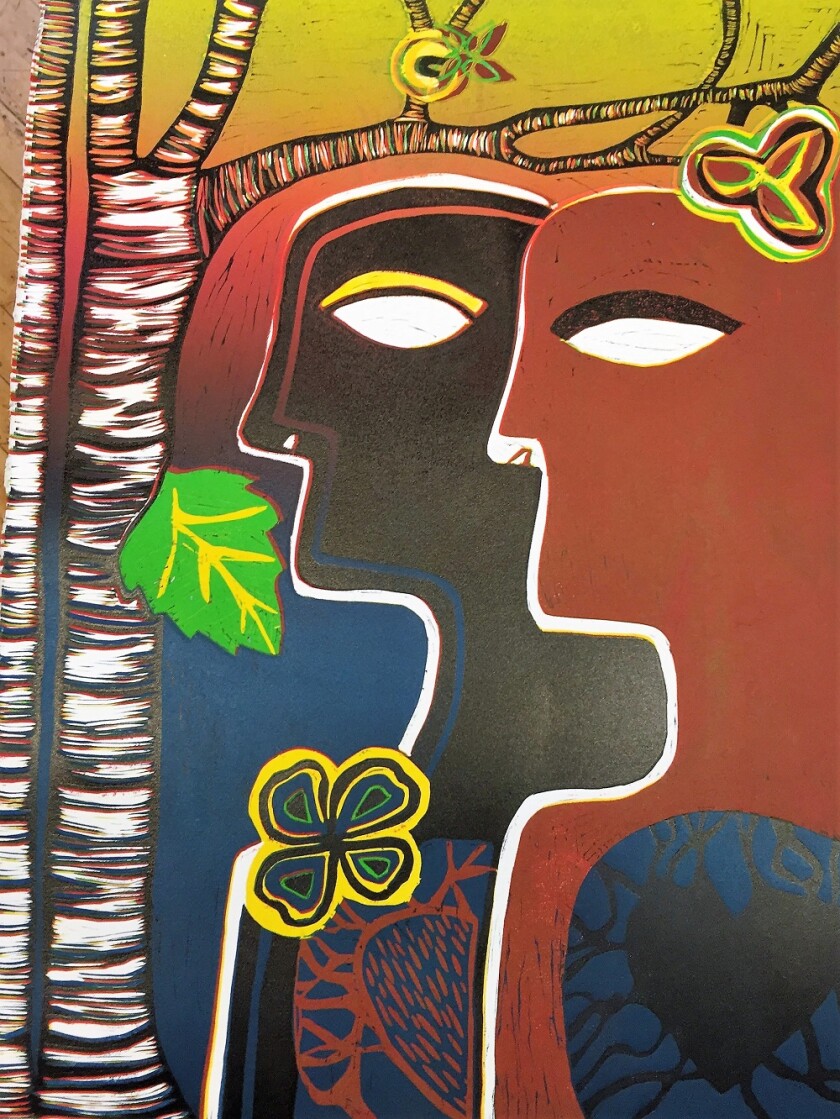
Contributed / Anna Johnson
Currently, Johnson is experimenting with printmaking techniques like monotypes and ledger on paper and birch bark. She recently completed a residency at NDSU where she had a month to devote solely to her art.
In contrast to her large-scale murals, Johnson’s prints are often a bit more straightforward. In such workshe implements relics from the natural environment, like prairie grasses to pay homage to her Indigenous roots.
“I think a lot of what I do and what I’m saying and some of the natural materials like the sage and the yarrow and the sweetgrass, those things are such important medicines in my culture that I want to highlight them in the most basic ways so you see it for what it is. Sometimes there’s not a great story that goes with the work. Sometimes it’s just something that looks nice but is also connected to me,” she said.

David Samson
Johnson occasionally teaches K-12 printmaking classes at venues like the Plains Art Museum, where she has plans for a show that explores the Native American boarding school experience in North Dakota.
“I’ve gotten pretty far in our community and would like to branch out into the other communities and show in a bigger museum,” which would require more time, money and possibly education, she said. “There is no graduate program in printmaking in North Dakota, so I do have some barriers if I want to go that way.”

David Samson/The Forum
As for her bid for city commission, Johnson wants to focus on embracing the community’s often hidden diversity, and it’s through her art she’s able to share her message of representation for all in front of a broader audience.
“I don’t think most people know just how diverse we really are here,” she said. “Art is the part that helps you value your community and feel appreciated. Art as activism is a real thing.”
This article is part of a content partnership with The Arts Partnership, a nonprofit organization cultivating the arts in Fargo, Moorhead and West Fargo. For more information, visit

